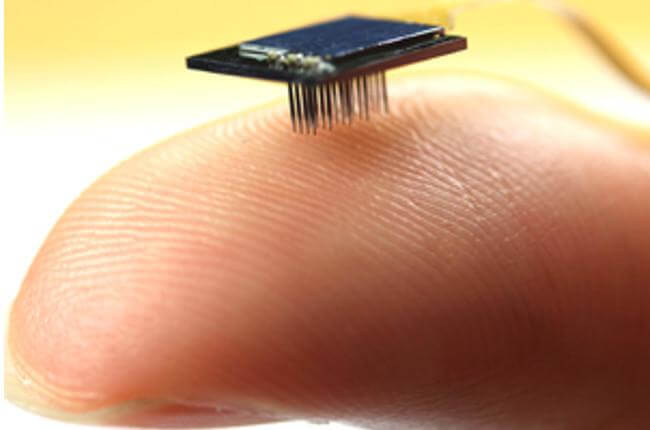- Get link
- X
- Other Apps

The chips that are implanted in the brain, are still perceived by us as something from the field of science fiction. But soon things can change, and such chips will find wide application in medicine.
Researchers from the Singapore Institute of Microelectronics have finally developed a special microchip that is so small that it can be placed in the patient’s brain on a long-term basis without the risk of damaging such sensitive tissues. The main purpose of this microchip is to assist in the management of prosthetic human limbs.
This chip, which scientists themselves call the neural array, forms a link between the patient's brain and his prosthesis, thereby allowing the disabled to stand up again. The technology is at the very starting point of its development and it is possible that in the near future we will hear about new areas of application for such tiny chips.
Of course, the risks of using such technologies, although reduced to a minimum, but still exist. To embed a chip in the brain, doctors will have to drill a hole in the skull. And although it will be quite small, there is a risk of infection being brought there or even damage to a vital part of the brain.
“The surface of any microchip embedded in the brain can contact the skull during micromovements and thus cause damage to the brain tissue by displacing implanted electrodes,” one of the researchers, Min-Yang Cheng, told Phys.org.
To solve this problem, the team of researchers had to reduce the size of the chip to the minimum possible using the process of innovative microassembly. The height of the chip case is only 750 micrometers, which is less than 1 millimeter.
The chip is implanted in the subarachnoid space of the brain right between the two membranes protecting it - the arachnoid membrane and the soft membrane. Tests on the biocompatibility of the chip with the human body showed very encouraging results. The chip did not lead to rupture of cell membranes or to the suppression of cell growth, which is just wonderful in the opinion of the researchers.
At the moment, Singaporean scientists are engaged in the final improvements of their technology, seeking to further reduce the risks to patients. After they finish - it is possible that many people with disabilities will be able to manage their prostheses with the power of thought. And this, you see, very, very well.
The article is based on materials .
- Get link
- X
- Other Apps
Comments
Post a Comment